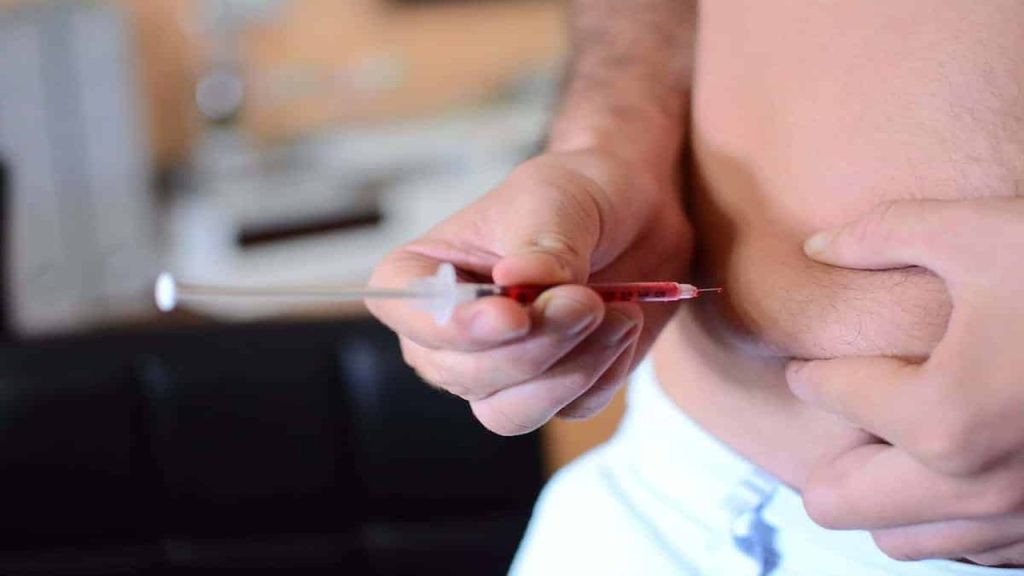Vitamin B12 is a water-soluble vitamin that plays a crucial role in various bodily functions. It is necessary for the formation of red blood cells, the proper functioning of the nervous system, and the synthesis of DNA.
While it is found naturally in certain animal-based foods, such as meat, fish, and dairy products, it can also be obtained through supplements or fortified foods for those following a vegetarian or vegan diet.
Understanding the importance of Vitamin B12 and its impact on our overall well-being is essential. From supporting brain health to enhancing energy levels, Vitamin B12 offers numerous benefits that should not be overlooked.
So, let’s dive into the world of Vitamin B12 and discover why it is an essential nutrient for optimal health.
Potential Health Benefits
Vitamin B12 is known for its potential health benefits in various aspects of well-being. Let’s explore some of these benefits in more detail:
1. Brain Function:
Adequate levels of vitamin B12 are essential for optimal brain function. B12 helps in the production of neurotransmitters, such as serotonin and dopamine, which are crucial for mood regulation, memory, and cognitive function.
It also plays a role in preventing cognitive decline and age-related memory loss.
2. Depression:
Research suggests that vitamin B12 may play a role in relieving symptoms of depression. Low levels of B12 have been associated with an increased risk of depressive symptoms.
Supplementing with B12, especially in individuals with a deficiency, may help improve mood and reduce the severity of depressive symptoms.
3. Osteoporosis:
Vitamin B12, along with other nutrients like calcium and vitamin D, is involved in bone health. Studies have shown that vitamin B12 deficiency can contribute to decreased bone density and an increased risk of osteoporosis.
Adequate B12 levels are necessary for proper calcium absorption and utilization, which is essential for maintaining strong and healthy bones.
4. Age-Related Macular Degeneration:
Age-related macular degeneration (AMD) is a leading cause of vision loss in older adults.
Some studies have suggested that vitamin B12, in combination with other nutrients like vitamin B6 and folic acid, may help reduce the risk of developing AMD and slow down its progression. However, more research is needed to establish a definitive link.
Other Claims:
Aside from the aforementioned benefits, some other potential health claims associated with vitamin B12 include:
– Boosting energy levels: B12 plays a crucial role in energy production by converting food into usable energy. Therefore, maintaining adequate B12 levels may help alleviate fatigue and promote increased energy levels.
– Supporting a healthy heart: It is believed that vitamin B12 may help reduce homocysteine levels in the blood.
High levels of homocysteine have been linked to an increased risk of heart disease. By reducing homocysteine levels, B12 may contribute to better cardiovascular health.
– Improving skin and hair health: Some anecdotal evidence suggests that B12 supplementation can improve skin clarity, promote a healthy complexion, and strengthen hair. However, more research is needed to confirm these claims.
While vitamin B12 offers various potential health benefits, it is important to note that individual results may vary, and it is always best to consult with a healthcare professional before starting any supplementation or treatment regimen.
What Happens if You Inject B12 Wrong: 6 Things to Avoid

When it comes to administering B12 injections, it is important to follow proper guidelines and techniques to ensure safety and effectiveness. Here are six common mistakes to avoid:
1. Hitting a nerve:
One of the most crucial aspects of administering B12 injections is avoiding nerves. Accidentally injecting into a nerve can cause pain, discomfort, and potential nerve damage.
To prevent this, it is essential to familiarize yourself with the anatomy of the injection site and choose an appropriate location that is away from major nerves.
2. Introducing microbes:
Proper hygiene and a sterile environment are essential during B12 injections. Introducing bacteria or other microbes into the injection site can lead to infections.
Always clean the injection site with an antiseptic solution and use sterile needles and syringes to prevent the introduction of potentially harmful microbes.
3. Injecting air bubbles:
Air bubbles may form in the syringe during the preparation process, and if injected, they can cause harm.
Although small air bubbles are generally harmless, injecting a large amount of air can lead to an air embolism, a potentially serious condition. To avoid this, make sure to fully expel any air bubbles from the syringe before administering the injection.
4. Injecting to the same spot repeatedly:
Repeatedly injecting B12 into the same spot on the body can lead to tissue damage and scarring.
It is important to rotate injection sites, allowing time for the tissue to heal between injections. Proper rotation can help prevent localized pain, bruising, and potential long-term complications.
5. Exposing the B12 solution to light:
Vitamin B12 is sensitive to light and can degrade when exposed to it. This can result in reduced potency and effectiveness of the solution.
To preserve the integrity of the B12 solution, store it in a dark, dry place away from direct light and follow the recommended storage guidelines provided with the product.
6. Waiting too long between injections:
Regularity is key when it comes to B12 injections. Waiting too long between injections can result in declining B12 levels in the body, potentially leading to deficiencies and related health problems.
It is important to stick to the recommended schedule provided by your healthcare provider to maintain optimal B12 levels.
By avoiding these common mistakes, you can ensure that B12 injections are administered safely and effectively, promoting the best possible results for your health.
However, it is always advisable to consult with a healthcare professional for personalized guidance and to address any specific concerns you may have regarding B12 injections.
Safety and Side Effects
B12 injections are generally considered safe when administered correctly and under the guidance of a healthcare professional.
However, like any medical intervention, there are potential side effects and safety considerations to be aware of. Here are some important points to keep in mind:
1. Allergic reactions:
While rare, some individuals may experience allergic reactions to vitamin B12 injections.
Symptoms may include itching, rash, swelling, dizziness, or difficulty breathing. If you experience any of these symptoms, seek immediate medical attention.
2. Pain or discomfort at the injection site:
It is not uncommon to experience mild pain, redness, or swelling at the injection site. This usually resolves within a short period. Applying a cool compress or gently massaging the area can help alleviate any discomfort.
3. Infection:
Proper hygiene and sterile technique are essential to minimize the risk of infection during injection.
If the injection site becomes increasingly painful, swollen, or shows signs of infection such as redness, warmth, or pus, contact your healthcare provider.
4. Mistaken injection:
Accidentally injecting B12 into a blood vessel can lead to complications. While rare, it can cause dizziness, shortness of breath, or even shock.
This emphasizes the importance of proper injection technique. If you experience severe symptoms, seek immediate medical attention.
5. Interactions and contraindications:
B12 injections may interact with certain medications or medical conditions. It is important to disclose your medical history and current medications to your healthcare provider before starting B12 injections.
6. Overdose:
Vitamin B12 is a water-soluble vitamin, and excess amounts are usually excreted through urine. However, extremely high doses of B12 may cause adverse effects.
It is important to follow the recommended dosage guidelines provided by your healthcare provider.
7. Medical supervision:
B12 injections are typically administered under the guidance of a healthcare professional. They will determine the appropriate dosage, injection site, and frequency based on your individual needs.
It is always advisable to consult with a healthcare professional before starting any new treatment, including B12 injections. They can provide personalized advice, help assess potential risks, and address any concerns you may have.
By following proper guidelines and seeking professional supervision, you can ensure the safety and effectiveness of B12 injections.
FAQ’s
What should you not do after a B12 shot?
After receiving a B12 shot, there are a few things you should avoid doing. Firstly, it is important not to engage in any strenuous physical activity or exercise immediately after the shot.
This is because the injection site may be sore and exercising could potentially worsen the discomfort. Additionally, it is advised not to consume alcohol for at least 24 hours after receiving a B12 shot.
Alcohol can interfere with the absorption of vitamin B12 and reduce its effectiveness. Lastly, it is recommended to avoid taking any other vitamin supplements or medications without consulting with a healthcare professional first, as they may interact with the B12 shot.
What happens if you inject too much B12?
Injecting too much B12 can have adverse effects on the body. B12 is a water-soluble vitamin, which means that excess amounts are typically excreted through urine.
However, in cases of excessive B12 injection, the body may struggle to eliminate the excess vitamin, leading to potential complications. Some common side effects of over-injecting B12 include diarrhea, nausea, vomiting, and stomach cramps.
In rare cases, individuals may experience more severe symptoms such as chest pain, difficulty breathing, and allergic reactions.
It is important to consult with a healthcare professional before starting any B12 injections to ensure proper dosage and minimize the risk of adverse effects.
How do you know if you hit a vein?
When injecting B12, it is important to know if you have hit a vein to ensure the proper administration of the vitamin. One way to determine if you have hit a vein is to observe the flow of blood.
If blood starts to flow back into the syringe after inserting the needle, you have likely hit a vein. Additionally, if you experience resistance or pain while injecting, it could be an indication that the needle has entered a vein.
It is important to be cautious and seek medical advice if you suspect that you have hit a vein while injecting B12 to prevent any potential complications.
Why do I feel weird after a B12 shot?
Feeling weird after a B12 shot is not uncommon and can be attributed to a few reasons. One possibility is that your body is adjusting to the sudden increase in vitamin B12 levels.
This can cause temporary symptoms such as dizziness, nausea, or an overall feeling of discomfort. Additionally, the injection itself can sometimes cause mild pain or irritation at the injection site, which can contribute to the feeling of being “weird.”
It’s important to note that these symptoms are usually temporary and should subside within a short period. If you experience severe or prolonged symptoms, it is advisable to consult with a healthcare professional.
Additional Posts:


